Title IX policy alteration unlikely; admin look to support students in other ways
February 6, 2021
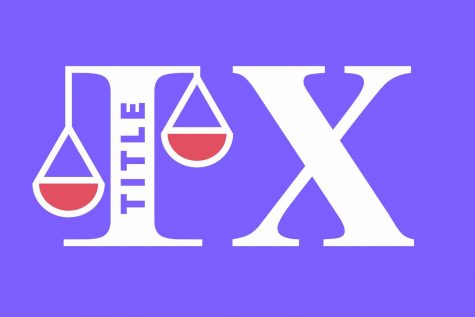
Following a recent torrent of sexual assault allegations shared by local students online, and a subsequent outpouring of support from the community, administrators say change in Title IX policy is unlikely, though work remains to be done in supporting students and improving school culture.
In an online storm early last week, dozens of students from Palo Alto High School and surrounding schools took to social media to share their stories as survivors of sexual misconduct and assault perpetrated by their peers. Many also expressed their disapproval over the administration’s response or lack thereof regarding past reports; sharing calls for action and circulating a pre-existing petition, now with over 3,500 signatures, calling for the district to put “new legislation in place to protect our students.”
However, shifts in existing district policy regarding Title IX are unlikely to occur, given the way that these policies were created, said Jennifer DiBrienza, member of the Palo Alto Unified School District Board of Education.
“I would say we’d be really hesitant to actually change policies, because as I said we crafted those policies with a lot of support from Title IX experts in the Office of Civil Rights,” DiBrienza said. “In fact, there’s a chance we might need permission from the Federal Office of Civil Rights before changing them.”
However, that doesn’t mean that there’s nothing to be done, DiBrienza added.
“When this many students are feeling unheard or unsupported, then clearly there’s more work to do, whether that’s in how we react to things or how we communicate what we’re doing with the processes or how we provide support afterwards,” DiBrienza said.
Paly Principal Brent Kline said he understands students’ frustration with ill-defined resolutions of sexual assault allegations handled by the school, but said that outcomes cannot always be shared — even with students who were the ones to report cases — in order to maintain privacy for minors as is required by law.
“Ultimately what it’s all about is being transparent, and to really share as much as I can about the inner workings of this process and also the benefits,” Kline said. “For most of us, unless we are involved in the whole process of reporting and going through an investigation, we’ll never know what’s going to happen, even if I’m the one that reported it, because we are dealing with students that are not adults, and we have a huge responsibility as a school system to keep your business private.”
While altering heavily researched policies and processes for requesting support in sexual violence cases is unlikely, Kline said he hopes to increase the transparency around the process and help students feel more supported in speaking up.
“I think there is a huge deficit in terms of opportunities for students to talk with me as a principal,” Kline said. “Opening the venues for students to share their experiences … that’s why I’m here.”
Junior Class President Mathew Signorello-Katz said last week that the Associated Student Body is working with student clubs to compile an open letter with a set of Title IX resources for students.
“[The open letter] is going to provide both our support and address the need for change to occur, as well as providing resources for people to access,” Signorello-Katz said. “Especially now, the resources that are offered haven’t really been in one streamlined location … which has made it extraordinarily difficult for people to get the help that they need.”
Though ASB proposals to raise awareness about sexual misconduct and Title IX have not yet received administrative approval, Signorello-Katz said the organization is working to combat the stigma around sharing experiences regarding sexual violence in the Paly community, starting with a “year-long subcommittee specifically focused on sexual violence awareness and advocacy.”
Education regarding Title IX and sexual misconduct can and should begin earlier than the Living Skills courses offered in high school in order to maximize student safety and cultivate a positive learning environment, according to both Kline and DiBrienza.
“We need to start things like consent and bodily autonomy education at kindergarten,” DiBrienza said. “In our community, our parents need to know how to talk about this with their kids from a young age, so that we’re not investigating instances later. … There is Board interest in support for and staff interest in support for developing that sort of consent education and bodily autonomy thread, all the way from kinder.”
Even so, DiBrienza said a shift in district culture toward better supporting survivors is still needed.
“Should we revisit how things happen and how students experience the process? For sure,” DiBrienza said. “I think that’s always sort of a continuous improvement and this is a harsh reminder that there’s always work to be done.”
Social media has long been a place for students to share personal stories and for those stories to be amplified by others in hopes of spreading awareness, and the recent wave of sexual assault allegations has been no exception to this. So long as accurate and respectful information is shared, Kline said that he supports social media for this purpose.
“If we are using these platforms to increase knowledge and awareness, I think that’s absolutely appropriate,” Kline said. “Speaking out and starting movements, I think that’s a requirement to being a contributor in our society.”






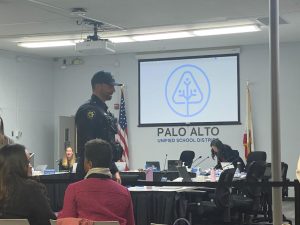
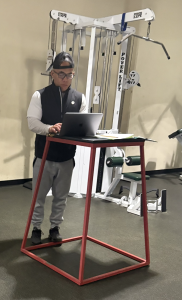

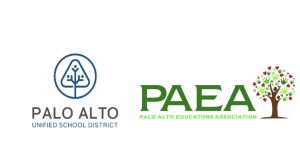
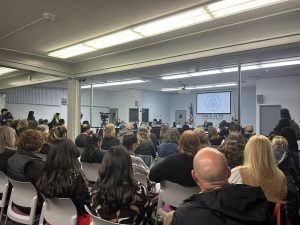
Keith Ferrell • Feb 6, 2021 at 1:45 pm
These are just more excuses given by the administration to do what is necessary to fully support students how have been assaulted. Two years ago the excuse was that staff wasn’t trained. Now DiBrienza is saying that education needs to start in Kindergarten. That’s great, but how does that help anyone today? She says there’s always continuous improvement, yet things are just as bad as they were 3 years ago. So where are the improvements?
The students seem to have some very basic requests that can make change in at least finding out how to start the process. Why has the school district made even that basic first step so difficult?
And then you have the Superintendent who seems to think it’s a great accomplishment to only have 5 reported sexual assaults and 15 reports of sexual harassment in one year at the school.
How about if the school actually listened to the students and hear how the administration has failed them and then take some action? The school and the district need to stop claiming to be working on it, and actually do something to make changes. Accountability would be a good first step.